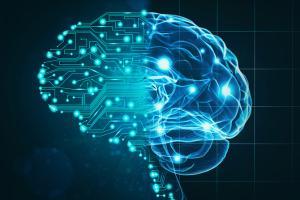Researchers have discovered a way to detect one of the hallmarks of Alzheimer's disease with the help of computer using artificial intelligence

Representational image
Researchers have found a way to precisely detect one of the hallmarks of Alzheimer's disease in human brain tissue with the help of computer using artificial intelligence (AI). According to a study, published Nature Communications journal, is a proof of concept for a computer-learning approach to distinguishing main markers of the neurodegenerative disease.
ADVERTISEMENT
Amyloid plaques are clumps of protein fragments found in the brains of Alzheimer's disease patients that destroy nerve cell connections, stated researchers at the University of California in the United States. The way the social media app Facebook recognises faces based on captured images, the computer learning tool can detect if a sample of brain tissue has one type of amyloid plaque or another. The findings suggest that computer learning can augment the analysis and expertise of an expert neuropathologist. The tool allows to analyse thousands of times more data and ask new questions that would not be possible with the limited data processing capabilities of even the most highly trained human experts.
According to Brittany N Dugger, an assistant professor at the UC Davis, and lead author of the study stated, "We still need the pathologist. This is a tool, like a keyboard is for writing. As keyboards have aided in writing workflows, digital pathology paired with machine learning can aid with neuropathology workflows."
She partnered with Michael J Keiser who is an assistant professor at University of California, San Francisco (UCSF), to determine if they could teach a machine to automate the laborious process of analysing and identifying tiny amyloid plaques of various types in large slices of autopsied human brain tissue. Michael J Keiser and his team designed a convolutional neural network also known as CNN, which is a computer programme designed to recognise different patterns based on thousands of human-labelled examples. The team invented a method that allowed it to rapidly label or annotate tens of thousands of images from a collection half a million close-up images of tissue from 43 healthy and diseased brain samples.
Like a computer dating app that allows users to swipe right or left to categorize someone's photograph as "hot" or "not," they developed a web platform that allowed Dugger to look at highly zoomed-in regions of potential plaques and quickly categorize what she saw there. The UCSF team used this database of tens of thousands of categorized example images to train their CNN computer-learning algorithm to identify different types of brain changes seen in Alzheimer's disease.
Top News Stories Of The Day
- Mumbai police probe Aditya Pancholi for 'assault and exploitation'
- Sion Hospital rape: He threatened to strangle me to death, says victim
- Video of sickle brandishing 'dada' lands him in jail in Wakad
- Mumbai: Toy gun breaks off as caretaker tries to rob Malad businessmen
- Five years on, Mumbai University continues to use old, shabby library
- Mumbai recalls 'fine gentleman' Nazir Hoosein behind Liberty Cinema
- Carrom player accident: Dombivli residents want working traffic lights, dedicated cops
- Forced to leave Mumbai, Pandey now struggles as a tea-seller in Kashi
- New BMC chief Pravin Pardeshi brings engineers back from leave
- Mumbai: Charkop citizens protest BMC's tree 'trimming'
- Witness statements don't support Tanushree Dutta's sexual harassment story, says Mumbai cops
- Sleepless on SV Road: Mumbai Metro 2B din ruins nights of Santacruz residents
- Skymet: Below normal rainfall expected in monsoon, 15 per cent chance of drought
- Mumbai Crime: Nigerian duo arrested for stealing money from ATMs
- Body of unidentified woman found at Juhu Chowpatty
Catch up on all the latest Crime, National, International and Hatke news here. Also download the new mid-day Android and iOS apps to get latest updates
Edited by mid-day online desk with inputs from Agencies
 Subscribe today by clicking the link and stay updated with the latest news!" Click here!
Subscribe today by clicking the link and stay updated with the latest news!" Click here!







